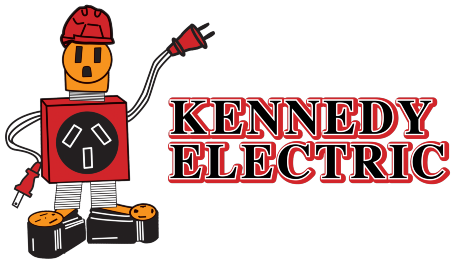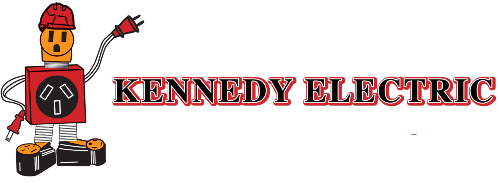Electrical Safety Tips for Commercial Property Managers
A proactive approach to electrical safety prevents accidents and verifies the smooth operation of business activities.
Maintaining electrical safety in commercial properties protects tenants, employees, and assets. A proactive approach to electrical safety prevents accidents and verifies the smooth operation of business activities. Here are essential electrical safety tips for commercial property managers to consider.
Regular Inspections and Maintenance
Conducting regular electrical inspections is the cornerstone of maintaining a safe commercial property. Engaging a commercial electrician to perform thorough inspections helps identify hazards such as faulty wiring, overloaded circuits, and outdated components. Regular maintenance schedules should be established to promptly address issues, confirming that all electrical systems are in optimal condition.
Upgrade Outdated Electrical Systems
Many commercial properties have aging electrical infrastructure that may not meet safety standards or handle modern electrical loads. Upgrading outdated electrical systems is essential to enhance safety and efficiency. A commercial electrical service can assess the property's electrical needs and recommend upgrades such as replacing old wiring, installing new circuit breakers, and upgrading the electrical panel.
Implementing Surge Protection
Power surges can damage electrical equipment and pose a fire risk. Implementing surge protection measures is vital for safeguarding sensitive electronics and reducing the risk of electrical fires. Installing surge protectors at principal points in the electrical system helps prevent damage caused by voltage spikes.
Appropriate Use of Extension Cords and Power Strips
Inappropriate use of extension cords and power strips is a common cause of electrical hazards in commercial properties. Extension cords should be employed only as a temporary solution, not as a permanent fixture. Overloading power strips can lead to overheating and increase the risk of fire. Educating tenants and employees on the proper use of these devices is essential.
Labeling and Signage
Clearly labeling electrical panels, circuits, and outlets is an effective way to promote electrical safety. Labels help identify the function of each circuit and the corresponding areas they serve, which is crucial during maintenance or emergencies. Additionally, displaying appropriate signage around electrical equipment and high-voltage areas alerts tenants and employees to potential hazards. Signage should include instructions on what to do in an electrical emergency, such as shutting off power or contacting a commercial electrician.
Training and Awareness Programs
Training tenants and employees on electrical safety is a proactive measure that significantly reduces the possibility of accidents. Organizing regular safety training sessions verifies that everyone is aware of best practices and understands the importance of electrical safety. Topics include proper use of electrical equipment, recognizing warning signs of electrical issues, and emergency response procedures. Awareness programs can also highlight the importance of promptly reporting any electrical concerns to the property management team.
Emergency Preparedness
Having a well-defined emergency response plan is crucial for handling electrical emergencies effectively. The plan should include policies for evacuating the building, shutting off power, and contacting emergency services. Regularly examining and updating the emergency response plan guarantees that it remains relevant and effective. Conducting periodic drills helps tenants and employees familiarize themselves with the procedures, reducing panic and confusion during emergencies.
Utilizing Professional Commercial Electrical Services
Partnering with a reputable commercial electrical service is essential for maintaining electrical safety in commercial properties. Professional electricians have the expertise to manage complex electrical systems and provide comprehensive maintenance and repair services. Regular collaboration with a commercial electrical service confirms that all electrical systems are up to code and functioning efficiently. These professionals can advise on energy-efficient solutions and electrical upgrades that enhance safety and reduce operational costs.
Monitoring Electrical Load
Monitoring the electrical load in commercial properties is fundamental for preventing overloads that can lead to equipment damage and electrical fires. Regularly checking the load distribution helps identify areas where circuits may be overloaded or underutilized. A commercial electrician can install load monitoring systems that provide real-time data on electrical consumption, enabling proactive management of electrical resources. Balancing the load distribution reduces the possibility of overheating and enhances the overall efficiency of the electrical system.
Routine Testing of Safety Devices
Safety devices such as circuit breakers, ground fault circuit interrupters (GFCIs), and arc fault circuit interrupters (AFCIs) are critical in protecting against electrical hazards. Regular testing of these devices verifies that they function correctly when needed. A commercial electrical service can perform routine tests and safety device inspections, promptly replacing faulty components. Making sure that all safety devices are in working order is a key aspect of maintaining a safe electrical system in commercial properties.
Implementing these electrical safety tips helps commercial property managers maintain a safe and efficient environment for tenants and employees. Regular inspections, upgrades, and training, combined with professional electrical services, create a proactive approach to electrical safety that minimizes risks and enhances the overall operation of commercial properties.
Kennedy Electric is a licensed, insured, and bonded electrician offering CCTV wiring, pool and spa wiring, electrical wiring for barns, whole-home rewiring, boat lift marina electrical wiring, and generator inlets/interlocks installation solutions to residential and commercial customers. Call today at 352-799-3434.


